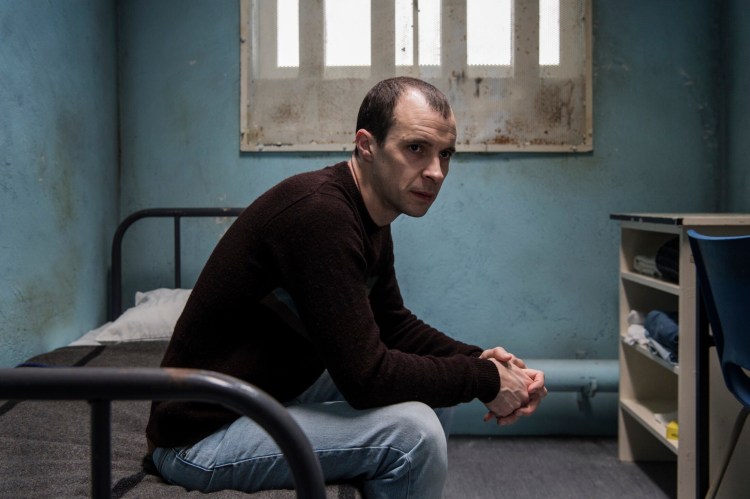“Maze,” writer-director Stephen Burke’s new film opening this week at the Railroad Square Cinema in Waterville, attempts to recreate a serious incident in the final stages of the 30-year war between the British Empire and the Catholic Irish Republican Army.
The film depicts the largest prison breakout in Europe from a high security prison know as the Maze, outside of Belfast in Ireland in 1983.
With such rich material to work with one should expect a film with the intensity of John Sturges’ 1963 “Great Escape,” or Jules Dassin’s 1947 powerful “Brute Force,” that starred Burt Lancaster. Unhappily Burke’s effort falls short of both.
The British, long accustomed to being the brutal ruler of the world, mishandled the whole affair of this event, just as they had in India, the Middle East and other parts of their doddering Empire.
Burke’s “Maze” wisely avoids trotting out the whole history of the prison here, but sticks to one small story that leads to the famous breakout of one of the most secure prisons in the world, an imposing castle with an impregnable keep.
FYI. Maze was a British experiment that housed some of the baddest of the bad IRA fighters for independence, whom they labeled “terrorists criminals.”
The infamous structure was situated somewhere outside of Belfast, and was built to keep the Irish independence fighters deeply locked in and impotent. The keepers were British, the captives were Irish; that never went well.
The ugliest part, that of the hunger strike where 10 IRA heroes starved themselves to death in protest, has been covered in better films and is only glimpsed here in the title pages.
The Irish “Troubles,” as they were called, have been covered in rich detail over the years in such classics as John Ford’s “The Informer” to modern films such as “The Boxer” with Daniel Day-Lewis, to “Some Mother’s Son” with Helen Mirren.
The great drama of those dark times and in particular this event always tends to overwhelm, and Burke has decided to cut it down to a slight tale of two small players, both representing the tragic and explosive bifurcation that threatens to destroy the country they both inhabit.
We see a self-centered revolutionary, the imprisoned IRA low-level plotter Larry Marley (Tom Vaughan-Lawlor), a man with a fevered soul but a cool brow. And then there’s Gordon (Barry Ward), the chief guard of Marley’s area, a burnt out, dissatisfied common man, both men sharing space in the troubled castle.
At the top of the story, Marley, who has already served 10 years in prison, has been transferred to Maze where he hopes to organize a massive breakout. But his plans are rejected by the group’s leader Oscar (Martin McCann.)
Still Marley persists, and starts his own plan by volunteering to mop floors and other tasks in the IRA section to ingratiate himself into a position of trust with Gordon, who has his own troubles. His a wife, weary of the dangers in his job, has been threatening to leave him.
This dilemma gives us the only really exciting moment early on, when a rogue IRA group acting on their own attempts to kill Gordon and his wife and kids in a parking lot.
With that, things begin to look up; then the fuse blows out, and the film suddenly flattens and goes stale.
Both players I’m sure, are good actors trapped in lukewarm characterizations, and the simmering duel, that should have flared up between them, fails to ignite, and in the final moments leaves us with slumbering coals. These were real men and the end credits crawl gives us their fates.
Having grown up with exciting American prison breakout movies such as “Brute Force” and all the great Warner Brothers 1930 Cagney and Garfield prison dramas, Burke’s “Maze” felt to this reviewer to be flat and with little tension. We’ve all seen great and exciting prison films; this wasn’t one of them.
J.P. Devine, of Waterville, is a former stage and screen actor.
Send questions/comments to the editors.



Comments are no longer available on this story